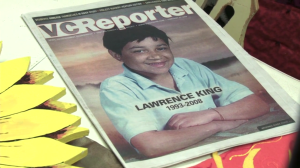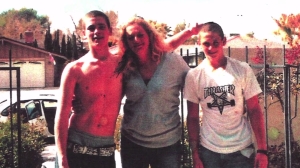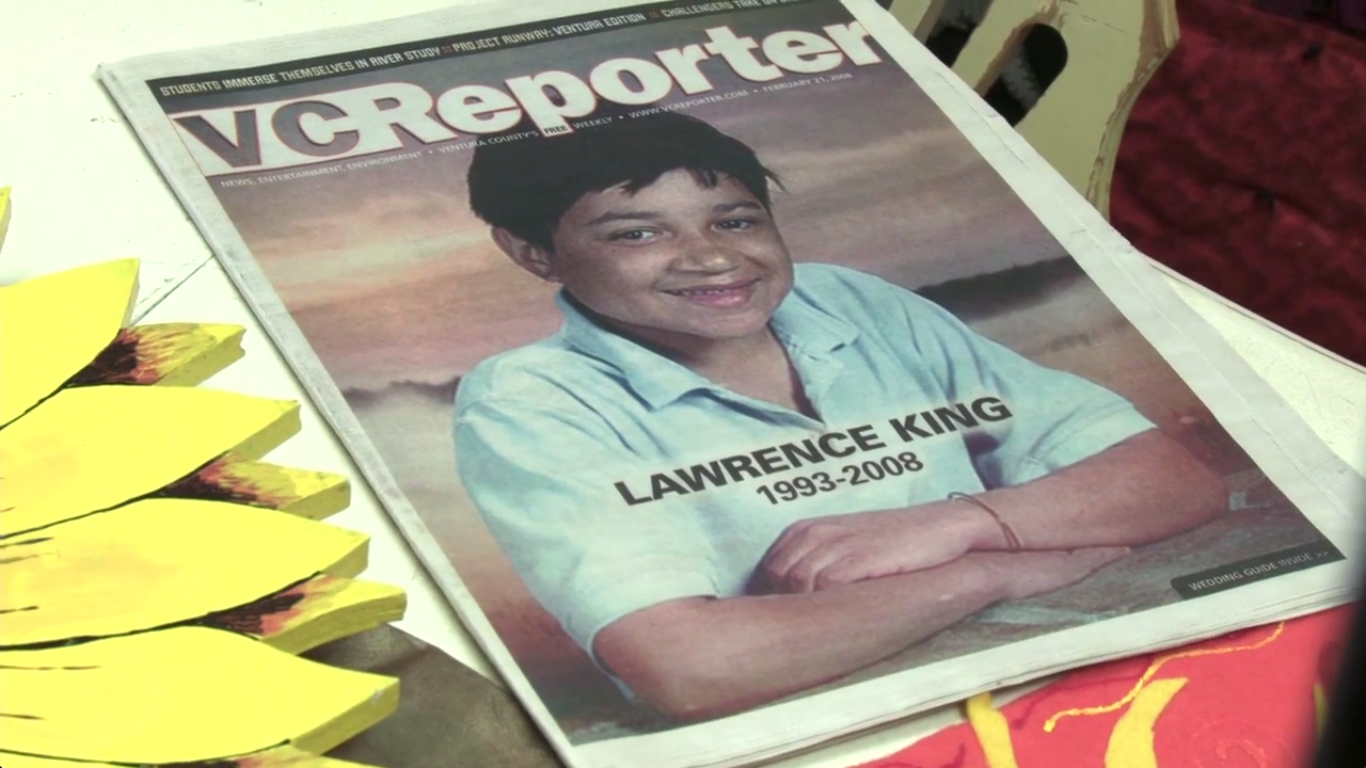In 2008, 15-year-old Lawrence “Larry” King was shot during class. The murderer was Brandon McInerney, a boy that Larry asked to be his Valentine. The incident rattled the community of Oxnard, California, a small town of nearly 200,000. This ignited a national conversation on why racial and gender-provoked bullying exists among youth. Consequently, teachers, parents, mentors and the people in the justice system collectively scrambled to address this unfortunate event.

Valentine Road gives us the story behind the headlines. This 90-minute documentary immerses us into the controversial shooting by weaving together a balanced combination of narrative interviews as told by the people related to the young men in question and the case itself. The documentary also features archived television news footage talking about the incident and presents the viewers with scenic views of the town, creating an in-your-face, yet relatable kind of film.
What makes this documentary interesting to watch is how both sides of the case are presented. To illustrate King’s perspective of the incident, the filmmakers have represented him in a hand-drawn animation based on narratives told by the interviewees. The drawings portray King’s character in a nostalgic, light-hearted and respectful manner.
McInerney’s perspective is also told through accounts by guardians, teachers and his defence lawyers explaining how and what might have provoked the boy to commit this hate-crime.
One of several interesting turning points in the film presents viewers with the kind of readings McInerney was interested in before he committed the murder, mainly neonazi and white supremacy articles, as well as drawings made by McInerney himself of a hand clenching the Star of David, dripping with blood.
Putting together these two perspectives helps to assemble the pieces of the puzzle. However, it can also become an emotional watching experience, potentially triggering folks who are sensitive to issues regarding gender and race-provoked bullying.
The culture in which these two individuals lived was hostile to begin with and created a polarizing environment when it came to being, or even mentioning anything queer. California, at that time, was also at odds with state legislations regarding gender issues and their expression. Ultimately, the question remains as to why freely expressing one’s own gender can become a taunting experience, especially for teens that are experiencing a crucial time of self-discovery.

Valentine Road has no voice-over narrator per se, and relies on a well-thought out blend of ambient sound, vivid visuals and authentic storytelling making it easy to follow without any sensationalizing, and without being obnoxious.
Through these stories, Valentine Road points to LGBTQ issues still being addressed today from a unique and contemporary perspective. Watching this film has the potential to help push these discussions forward and understand where everyone stands.
However, it is highly suggested to learn more about the incident first online in order to gain a better understanding, as this film goes into a lot of detail into the origins of the main characters. Watching the documentary more than once also helps as there is a lot information to grasp. After all, this is a murder mystery that still needs (and still is in the process) of being solved and put to rest.
Valentine Road will premiere in Quebec by Cinema Politica on Mon. Feb. 3 at 7 p.m. at the D.B. Clarke Theatre — 1455 de Maisonneuve W. A virtual Q&A with director Marta Cunningham will be featured. This screening is a part of Black History Month Montréal. For more information visit cinemapolitica.org/concordia




